- Sep 22, 2013
- 4,956
- 250
- 85
This is an American-landscape fable symbolic of the aesthetic features of our traffic-journalistic TrumpUSA, so it's dedicated to our Twitter-loving President Trump!
Cheers (signing off),
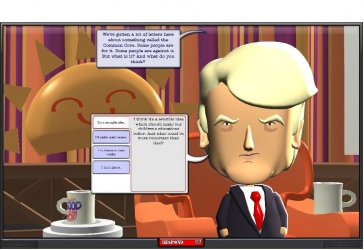
====
An African-American explorer from the Old West named Django came up with a strange metaphysics theory about a dark mystical humanoid named Mr. Brittle, a man composed entirely of paper or cardboard and hence symbolic of the flimsiness of materials and the communicability of faith itself. Mr. Brittle was a strange 'character' so Django wrote poems about him, referring to him sometimes as the Paper-Man. Django's Paper-Man poems were recognized by post-office worker in Texas who wanted to publish the poems. Django was intrigued by the prospect of sudden celebrity, since he was a recently freed slave, following the Abolition of slavery in America after the Civil War.
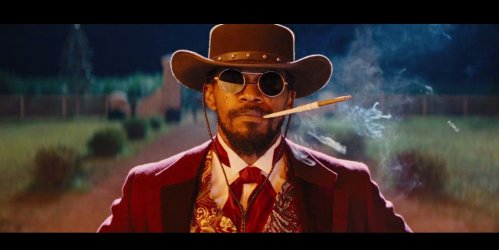
Generations later, a German-American eccentric performance-artist named Edwyn Reynolds invented a comedic comic book stylized character named Book-Man, a strange fellow who collected lots of books but never read them. Book-Man, like Django's Paper-Man (or 'Mr. Brittle') symbolized the oddness of knowledge and the tangibility of faith as it applied to the 'communicability' of imagination or spirituality. Edwyn Reynolds' Book-Man intrigued a comedy-recruit working for SNL (Saturday Night Live). When Book-Man was featured in an SNL skit, audiences loved it, but Book-Man was a short-lived featurette on SNL.
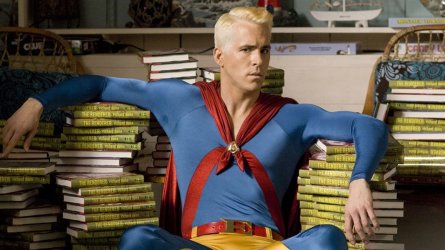
Some time later, after capitalism-baron Donald Trump was elected as U.S. President, yet another artist, this time a glass-miniature sculptor named Ajay Satan created various miniature glass mermaids and called them his Sea-Sirens. Ajay's Sea-Sirens, just like Django's Paper-Man and Edwyn Reynolds' Book-Man, symbolized the transient features of the human soul and the tangibility of the 'magic' of faith. Satan's Sea-Sirens caught the attention of a Christian website-designed who featured them on a special webpage for a major Christian editorialist on EWTN (Catholic-TV).
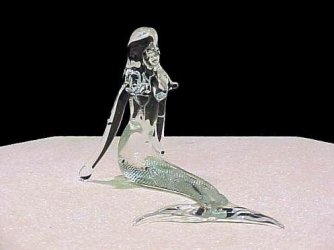
Finally, some years later, a political-cartoonist working for the New Yorker named Tom Hanks (no relation to the Hollywood super-celebrity) named Bill Nash invented a series of TrumpUSA-parody political cartoons involving a sociopathic FedEX mail-man named Mr. Mustache. Mr. Mustache would deliver mail to the White House and then remove his fake mustache before killing a policeman in D.C. Mr. Mustache killed 10 D.C. cops before Bill Nash concluded this series of political-cartoon featurettes about TrumpUSA. Obviously, Mr. Mustache symbolized the modern-American paranoia regarding basic social/traffic vulnerabilities (e.g., media-scandals) in a new age of great media, commerce, marketing, news, and networking.
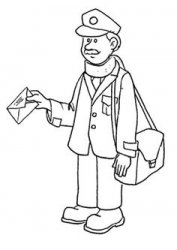
Of all these colorful historic fictional 'characters' signifying a social fascination with the 'ergonomics' of faith and patriotism-discourse, Paper-Man was the most appealing to a Yale University Comparative Literature professor who was working on a study about the characterization of values in public discourse and in magazines, gazettes, and journals such as the New Yorker. This Yale professor, Tom Cruise (no relation to the Hollywood super-celebrity), wanted Django's Paper-Man to be considered a major character in American folklore symbolizing a general cultural curiosity about the 'ergonomics' of faith and metaphysics. Dr. Cruise reasoned that evaluating the characterizations of values in an America evolving in terms of networks and communications revealed a general 'traffic aesthetic.'

Dr. Cruise began collecting all kinds of images and arts and crafts of paper-sculptures, origami, and even cardboard sculptures for a collection reflective of the original sociological 'vision' of Django and his nifty/clever 'being' named Paper-Man (or 'Mr. Brittle'). These collections of Dr. Cruise were very precious, and he showed his Yale peer and suggested someone should write a socioculturally-reflective novel (someday) about the tangibility of sanity in a world overrun by traffic and commerce and transit. Dr. Cruise wrote a letter to U.S. President Donald Trump which included a photo of a paper-cut miniature bird-sculpture, suggesting that modern technologies such as Twitter which facilitated communications in the emerged media landscape represented a distinct 'American imagination.' Would Trump feel inspired?
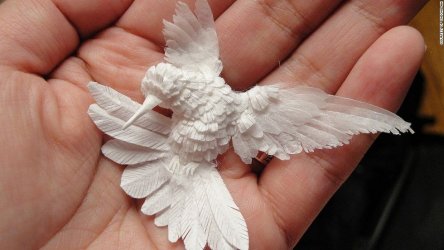
Regardless, Dr. Cruise kept studying this peculiar phenomenon of Paper-Man (or 'Mr. Brittle') and began downloading relevant/reflective American films on Netflix such as Darkman, Iron Man, Mr. Glass, Tron, Matchstick Men, and Beware the Shadowman. Dr. Cruise concluded that Paper-Man was a great avatar for modernism and reinvented him for a new novel about American communication highways called FedEx Man. It won Dr. Cruise the Pulitzer Prize.

American film-maker Brett Ratner read Dr. Cruise's novel and decided to adapt the general idea of Paper-Man for a new Iron Man film character, a nemesis/adversary who would be the 'mirror-image' of Iron Man but comprised entirely of cardboard and lasers. This villainous nemesis, Cut-Out Man, symbolized all the strangeness of socialization and the muscularity of traffic in the modern age in the evil visage that Iron Man detested. Cut-Out Man became a rather popular Iron Man enemy. President Trump tweeted, "Cut-Out Man reminds me of Tom Hanks' comedic-skit character Mr. Short-Term Memory on SNL!"

After a deranged sociopath/terrorist named Thomas Hewitt read President Trump's tweet about Cut-Out Man, Hewitt concluded that TrumpUSA simply did not care for strange and wonderful ideas about the tangibility of faith in this modern age of dizzying traffic and commerce and claustrophobic media. Hewitt decided to start copycatting the fictional American horror-film character Leatherface, the iconic chainsaw-wielding cannibal from the Texas Chainsaw Massacre series. Fortunately, an FBI rookie-detective named Ajay Lucas started tracking Hewitt/Leatherface by dressing up as a 'pro-TrumpUSA ninja' and parading himself on the news as a 'traffic vigilante.' Lucas lured Hewitt/Leatherface to an IKEA store where he tranquilized him with a dart-gun before hauling off to a center for the incarceration of the criminally-insane. Trump tweeted, "FBI Detective Lucas has shown everyone that no kind of deranged 'pseudo-protest' under TrumpUSA will be tolerated!"

Meanwhile, FBI Detective Lucas became a celebrity, and he was featured in a TIME magazine article about great American lawmen, including Pat Garrett and Melvin Purvis. Soon, a comic book writer working for Marvel named Len Carter adapted the life and deeds of Detective Lucas into a G.I. Joe comics-series about the white-robed ninja-assassin known as Storm-Shadow. Carter's Lucas/Storm-Shadow became a great comics-character symbolic of an American fascination with vigilantism and traffic-control. Carter began comparing Lucas/Storm-Shadow to Django's original Paper-Man, citing intriguing sociocultural parallels.
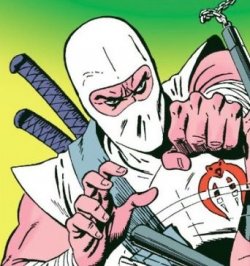
TRUMP: I love this Lucas/Storm-Shadow, Mr. Carter.
CARTER: Thanks, Mr. President!
TRUMP: I also like your comparisons of Storm-Shadow to Paper-Man!
CARTER: Yes, Django's Paper-Man is very much like Storm-Shadow.
TRUMP: They both symbolize 'traffic-sensitivity.'
CARTER: They're part of the 'American aesthetic.'
TRUMP: Are you a fan of FedEx, Carter?
CARTER: I prefer UPS, sir.
TRUMP: Well, the mail-delivery system will always be celebrated.
CARTER: Yes, historians study the Pony Express, FedEx, and Hotmail.
TRUMP: Do you care about traffic in the modern age of networks?
CARTER: Sure! I'm a big fan of Facebook...
TRUMP: I think Americans love storytelling, since we're curious about 'highways.'
====


Cheers (signing off),

====
An African-American explorer from the Old West named Django came up with a strange metaphysics theory about a dark mystical humanoid named Mr. Brittle, a man composed entirely of paper or cardboard and hence symbolic of the flimsiness of materials and the communicability of faith itself. Mr. Brittle was a strange 'character' so Django wrote poems about him, referring to him sometimes as the Paper-Man. Django's Paper-Man poems were recognized by post-office worker in Texas who wanted to publish the poems. Django was intrigued by the prospect of sudden celebrity, since he was a recently freed slave, following the Abolition of slavery in America after the Civil War.

Generations later, a German-American eccentric performance-artist named Edwyn Reynolds invented a comedic comic book stylized character named Book-Man, a strange fellow who collected lots of books but never read them. Book-Man, like Django's Paper-Man (or 'Mr. Brittle') symbolized the oddness of knowledge and the tangibility of faith as it applied to the 'communicability' of imagination or spirituality. Edwyn Reynolds' Book-Man intrigued a comedy-recruit working for SNL (Saturday Night Live). When Book-Man was featured in an SNL skit, audiences loved it, but Book-Man was a short-lived featurette on SNL.

Some time later, after capitalism-baron Donald Trump was elected as U.S. President, yet another artist, this time a glass-miniature sculptor named Ajay Satan created various miniature glass mermaids and called them his Sea-Sirens. Ajay's Sea-Sirens, just like Django's Paper-Man and Edwyn Reynolds' Book-Man, symbolized the transient features of the human soul and the tangibility of the 'magic' of faith. Satan's Sea-Sirens caught the attention of a Christian website-designed who featured them on a special webpage for a major Christian editorialist on EWTN (Catholic-TV).

Finally, some years later, a political-cartoonist working for the New Yorker named Tom Hanks (no relation to the Hollywood super-celebrity) named Bill Nash invented a series of TrumpUSA-parody political cartoons involving a sociopathic FedEX mail-man named Mr. Mustache. Mr. Mustache would deliver mail to the White House and then remove his fake mustache before killing a policeman in D.C. Mr. Mustache killed 10 D.C. cops before Bill Nash concluded this series of political-cartoon featurettes about TrumpUSA. Obviously, Mr. Mustache symbolized the modern-American paranoia regarding basic social/traffic vulnerabilities (e.g., media-scandals) in a new age of great media, commerce, marketing, news, and networking.

Of all these colorful historic fictional 'characters' signifying a social fascination with the 'ergonomics' of faith and patriotism-discourse, Paper-Man was the most appealing to a Yale University Comparative Literature professor who was working on a study about the characterization of values in public discourse and in magazines, gazettes, and journals such as the New Yorker. This Yale professor, Tom Cruise (no relation to the Hollywood super-celebrity), wanted Django's Paper-Man to be considered a major character in American folklore symbolizing a general cultural curiosity about the 'ergonomics' of faith and metaphysics. Dr. Cruise reasoned that evaluating the characterizations of values in an America evolving in terms of networks and communications revealed a general 'traffic aesthetic.'

Dr. Cruise began collecting all kinds of images and arts and crafts of paper-sculptures, origami, and even cardboard sculptures for a collection reflective of the original sociological 'vision' of Django and his nifty/clever 'being' named Paper-Man (or 'Mr. Brittle'). These collections of Dr. Cruise were very precious, and he showed his Yale peer and suggested someone should write a socioculturally-reflective novel (someday) about the tangibility of sanity in a world overrun by traffic and commerce and transit. Dr. Cruise wrote a letter to U.S. President Donald Trump which included a photo of a paper-cut miniature bird-sculpture, suggesting that modern technologies such as Twitter which facilitated communications in the emerged media landscape represented a distinct 'American imagination.' Would Trump feel inspired?

Regardless, Dr. Cruise kept studying this peculiar phenomenon of Paper-Man (or 'Mr. Brittle') and began downloading relevant/reflective American films on Netflix such as Darkman, Iron Man, Mr. Glass, Tron, Matchstick Men, and Beware the Shadowman. Dr. Cruise concluded that Paper-Man was a great avatar for modernism and reinvented him for a new novel about American communication highways called FedEx Man. It won Dr. Cruise the Pulitzer Prize.

American film-maker Brett Ratner read Dr. Cruise's novel and decided to adapt the general idea of Paper-Man for a new Iron Man film character, a nemesis/adversary who would be the 'mirror-image' of Iron Man but comprised entirely of cardboard and lasers. This villainous nemesis, Cut-Out Man, symbolized all the strangeness of socialization and the muscularity of traffic in the modern age in the evil visage that Iron Man detested. Cut-Out Man became a rather popular Iron Man enemy. President Trump tweeted, "Cut-Out Man reminds me of Tom Hanks' comedic-skit character Mr. Short-Term Memory on SNL!"

After a deranged sociopath/terrorist named Thomas Hewitt read President Trump's tweet about Cut-Out Man, Hewitt concluded that TrumpUSA simply did not care for strange and wonderful ideas about the tangibility of faith in this modern age of dizzying traffic and commerce and claustrophobic media. Hewitt decided to start copycatting the fictional American horror-film character Leatherface, the iconic chainsaw-wielding cannibal from the Texas Chainsaw Massacre series. Fortunately, an FBI rookie-detective named Ajay Lucas started tracking Hewitt/Leatherface by dressing up as a 'pro-TrumpUSA ninja' and parading himself on the news as a 'traffic vigilante.' Lucas lured Hewitt/Leatherface to an IKEA store where he tranquilized him with a dart-gun before hauling off to a center for the incarceration of the criminally-insane. Trump tweeted, "FBI Detective Lucas has shown everyone that no kind of deranged 'pseudo-protest' under TrumpUSA will be tolerated!"
Meanwhile, FBI Detective Lucas became a celebrity, and he was featured in a TIME magazine article about great American lawmen, including Pat Garrett and Melvin Purvis. Soon, a comic book writer working for Marvel named Len Carter adapted the life and deeds of Detective Lucas into a G.I. Joe comics-series about the white-robed ninja-assassin known as Storm-Shadow. Carter's Lucas/Storm-Shadow became a great comics-character symbolic of an American fascination with vigilantism and traffic-control. Carter began comparing Lucas/Storm-Shadow to Django's original Paper-Man, citing intriguing sociocultural parallels.

TRUMP: I love this Lucas/Storm-Shadow, Mr. Carter.
CARTER: Thanks, Mr. President!
TRUMP: I also like your comparisons of Storm-Shadow to Paper-Man!
CARTER: Yes, Django's Paper-Man is very much like Storm-Shadow.
TRUMP: They both symbolize 'traffic-sensitivity.'
CARTER: They're part of the 'American aesthetic.'
TRUMP: Are you a fan of FedEx, Carter?
CARTER: I prefer UPS, sir.
TRUMP: Well, the mail-delivery system will always be celebrated.
CARTER: Yes, historians study the Pony Express, FedEx, and Hotmail.
TRUMP: Do you care about traffic in the modern age of networks?
CARTER: Sure! I'm a big fan of Facebook...
TRUMP: I think Americans love storytelling, since we're curious about 'highways.'
====

